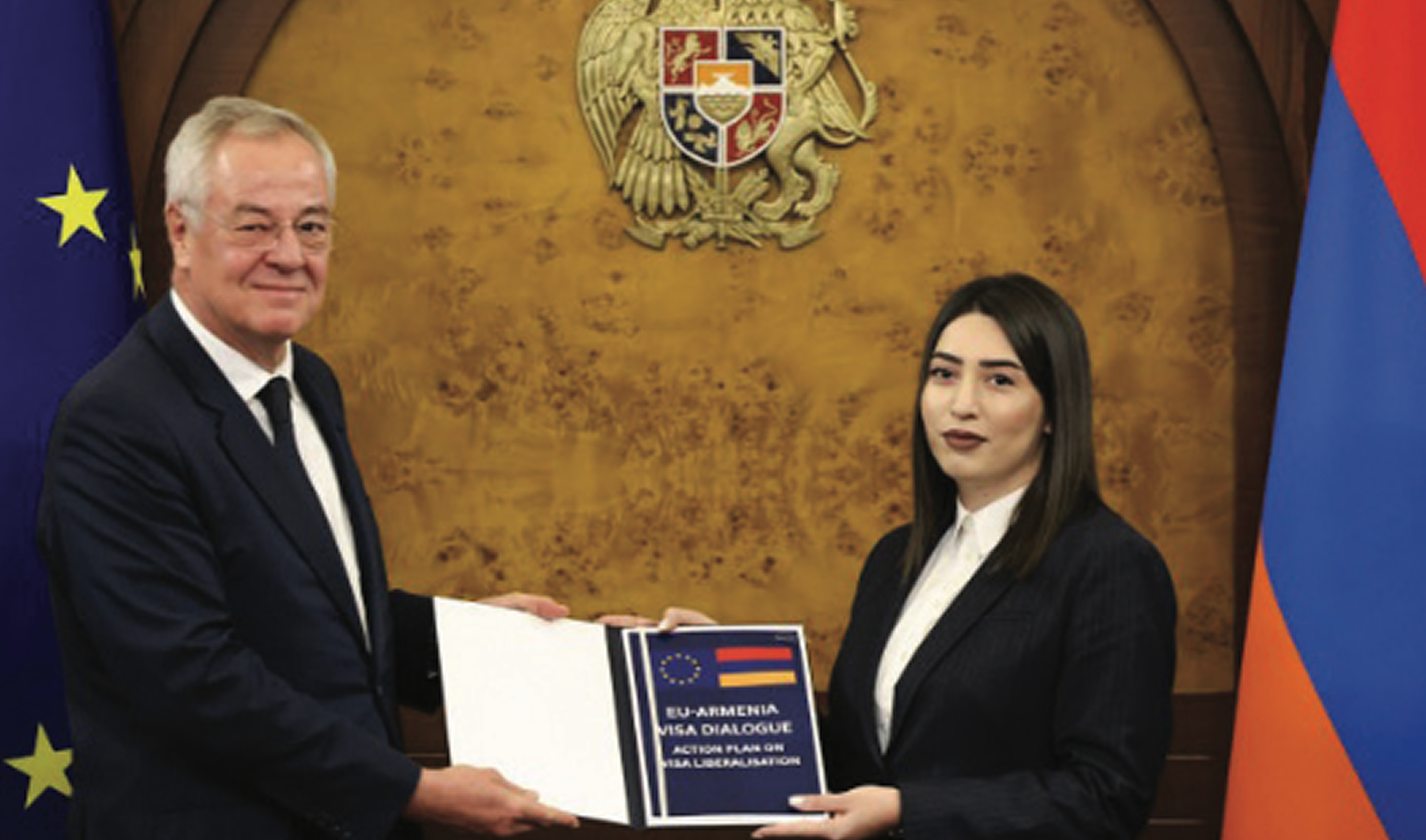YEREVAN — During his visit to Armenia on November 5, Deputy Director-General for Migration and Home Affairs of the European Commission, Johannes Luchner, presented Armenia with the Armenia–EU Visa Liberalization Action Plan. The document was handed to Armenia’s Minister of Internal Affairs, Arpine Sargsyan, who is the high-ranking official responsible for the Armenia–EU dialogue on visa liberalization. The handover ceremony took place in the presence of Deputy Prime Minister Mher Grigoryan. Upon receiving the document, Minister Sargsyan noted that it marks an important stage in the partnership between Armenia and the European Union, one that has already generated significant public attention and expectations. Both sides expressed satisfaction with the progress achieved so far and emphasized that the official transfer of the Visa Liberalization Action Plan is a testament to the genuine efforts of both parties. The Armenian side reaffirmed its commitment to implementing the measures outlined in the plan, the ultimate goal of which is to ensure dignified, safe, and convenient travel opportunities for Armenian citizens to the European Union. Following the ceremony, Luchner and Sargsyan held a press conference and answered questions from journalists. The delivery of the action plan follows the launch of official visa liberalization talks between Armenia and the EU in September 2024. At that time, Armenian and EU officials outlined a process that focuses on crucial areas for eventual visa-free travel, including document security, border and migration management, the fight against corruption and organized crime as well as upholding fundamental rights. EU representatives have emphasized that all benchmarks must be fully met before the Council of the EU and the European Parliament can make a final decision. In March, the Armenian parliament passed a bill calling on the government to begin the process of applying for European Union membership. The bill, known as the EU Integration Act, was signed into law by the country’s president the following month, making it formally part of Armenia’s legislation.

